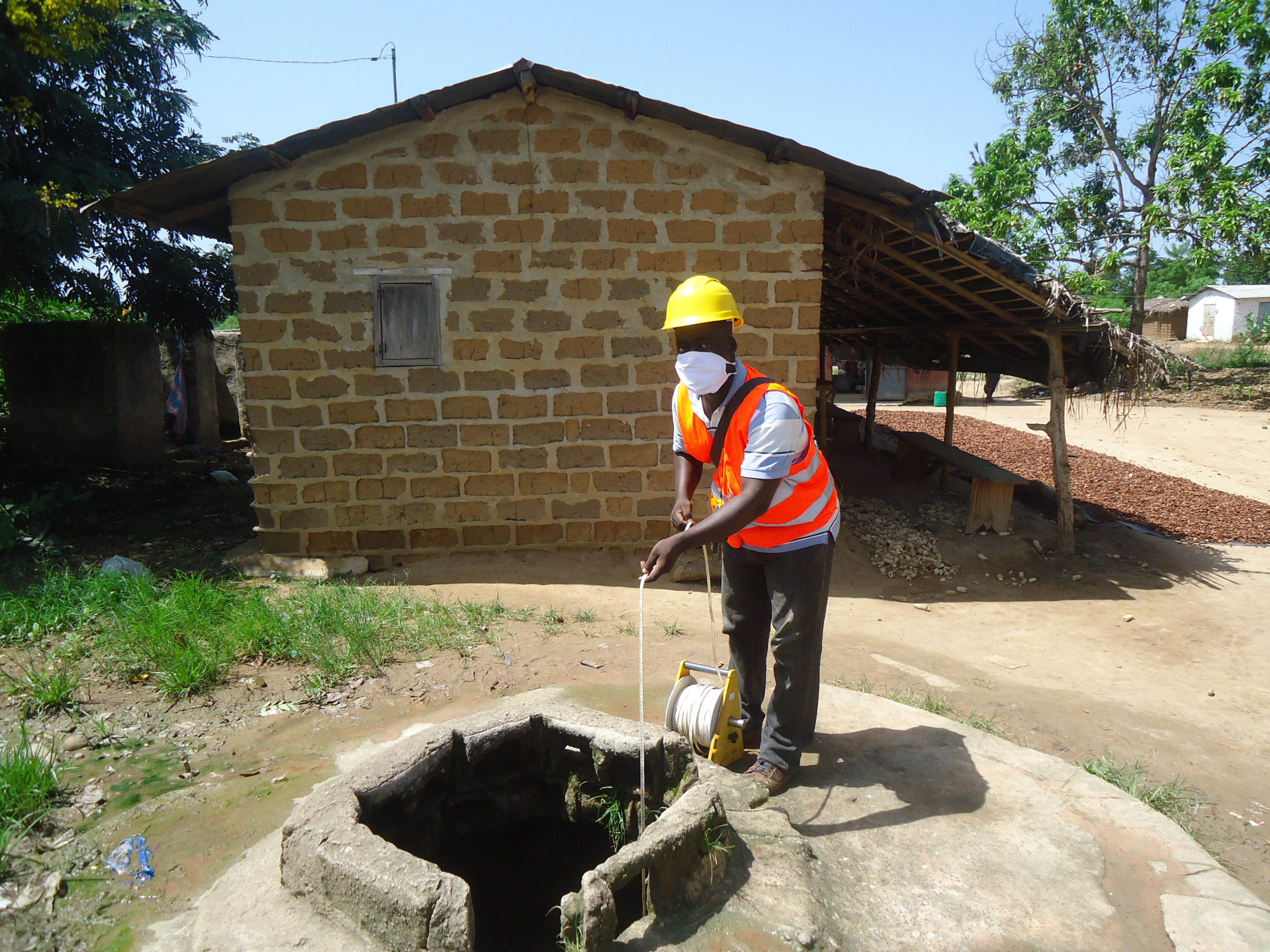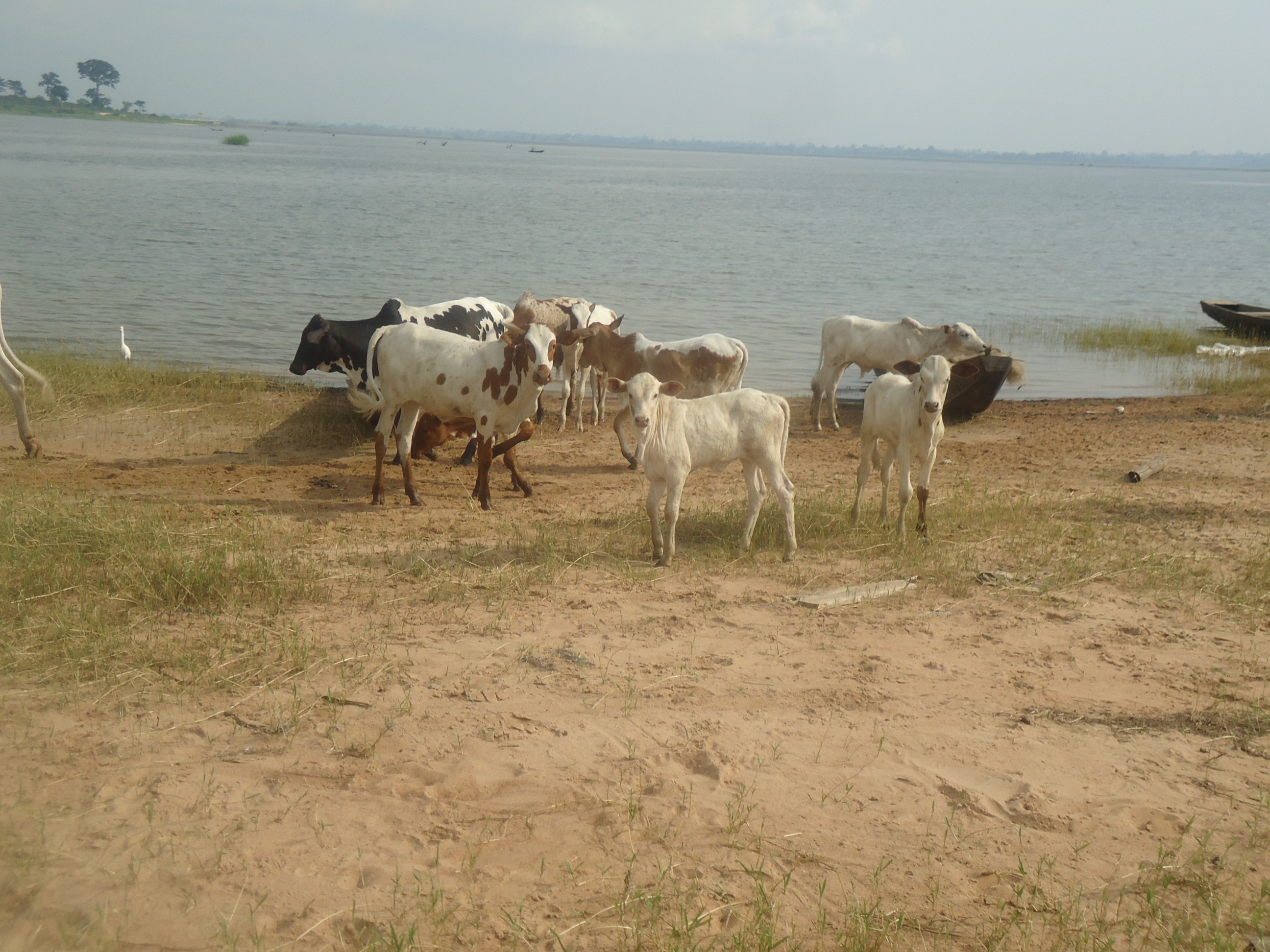Improving citizens' quality of life in the Ivory Coast is the goal of Fullbright Visiting Scholar Anoh Armand
Fullbright Visiting Scholar, Anoh Armand, Ph.D., came to Michigan State University to help his home country

July 27, 2023
Anoh Armand, Ph.D., came to the Department of Biosystems and Agricultural Engineering (BAE) at Michigan State University (MSU) to be a Fullbright Visiting Scholar from the Ivory Coast, formally known as C'te d'Ivoire, where he grew up. Armand's  journey to MSU started with a simple goal: improving the residents' quality of life in his home country.
journey to MSU started with a simple goal: improving the residents' quality of life in his home country.
Armand's background includes bachelor's degrees in hydrology and hydrogeology from Nangui-Abrogoua University (formerly called Abobo-Adjame University). He completed his master's degrees at Nangui Abrogoua University. He followed this up with his advanced master's degree at the Felix Houphou't-Boigny University in Abidjan. Armand's Ph.D. program took him for five months to the University of Bacau in Romania, and he spent fifteen months studying at the ETH Zurich University (in particular at the EAWAG center) before successfully defending his thesis home in 2014.
Ivory Coast is the leading force in the West African region for most agricultural production. Unfortunately, the country is lagging behind in drinking water supply issues. As if that was not enough, a political crisis in 2011 led many families to flee the countryside to arrive in safer larger cities, such as Abidjan. The large influx of people into this city, amplified by people leaving the countryside, uncontrolled urbanization, and decreasing rainfall, has increased the pressure on the only drinking water resource available coming from groundwater.
To combat this, the Ivorian government began bringing water to Abidjan from the neighboring cities (of which Bonoua) to provide water for the citizens. Unfortunately, given the irregular rainfall, the main question is how long the Bonoua aquifer will meet the increasing needs in the citizens' water. Also, as this aquifer is exposed to contamination from agricultural inputs, can its quality be guaranteed?
 To solve these problems, Armand looked at professors around the globe who worked in his field of interest. Biosystems Engineering Professor Pouyan Nejadhashemi, Ph.D., is a leading expert in this field. Armand joined MSU as a Fullbright Visiting Scholar to work with Nejadhashemi in his lab. So, Armand's research examines the interactions between surface water and groundwater. Water is constantly exchanged between surface water and groundwater, and these interactions can lead to chemicals, such as nitrates, to be transferred as well. Surface water replenishes underlying aquifers, where the groundwater can be stored for as long as necessary before returning to the surface. Armand's research looks to understand how the relationship between surface water and groundwater works. This work will also lead to an understanding how water chemicals respond to changes in climate, land use, or management. By understanding the relationship and how it impacts the environment, Armand can take this information home to the Ivory Coast.
To solve these problems, Armand looked at professors around the globe who worked in his field of interest. Biosystems Engineering Professor Pouyan Nejadhashemi, Ph.D., is a leading expert in this field. Armand joined MSU as a Fullbright Visiting Scholar to work with Nejadhashemi in his lab. So, Armand's research examines the interactions between surface water and groundwater. Water is constantly exchanged between surface water and groundwater, and these interactions can lead to chemicals, such as nitrates, to be transferred as well. Surface water replenishes underlying aquifers, where the groundwater can be stored for as long as necessary before returning to the surface. Armand's research looks to understand how the relationship between surface water and groundwater works. This work will also lead to an understanding how water chemicals respond to changes in climate, land use, or management. By understanding the relationship and how it impacts the environment, Armand can take this information home to the Ivory Coast.
As they say, the best way to defend is to counter-attack. In other words, prevention is better than cure. Said Armand Ultimately, the result of my study will help the decision-makers to better manage the water table currently used to supply drinking water of Abidjan's citizens.



 Print
Print Email
Email



